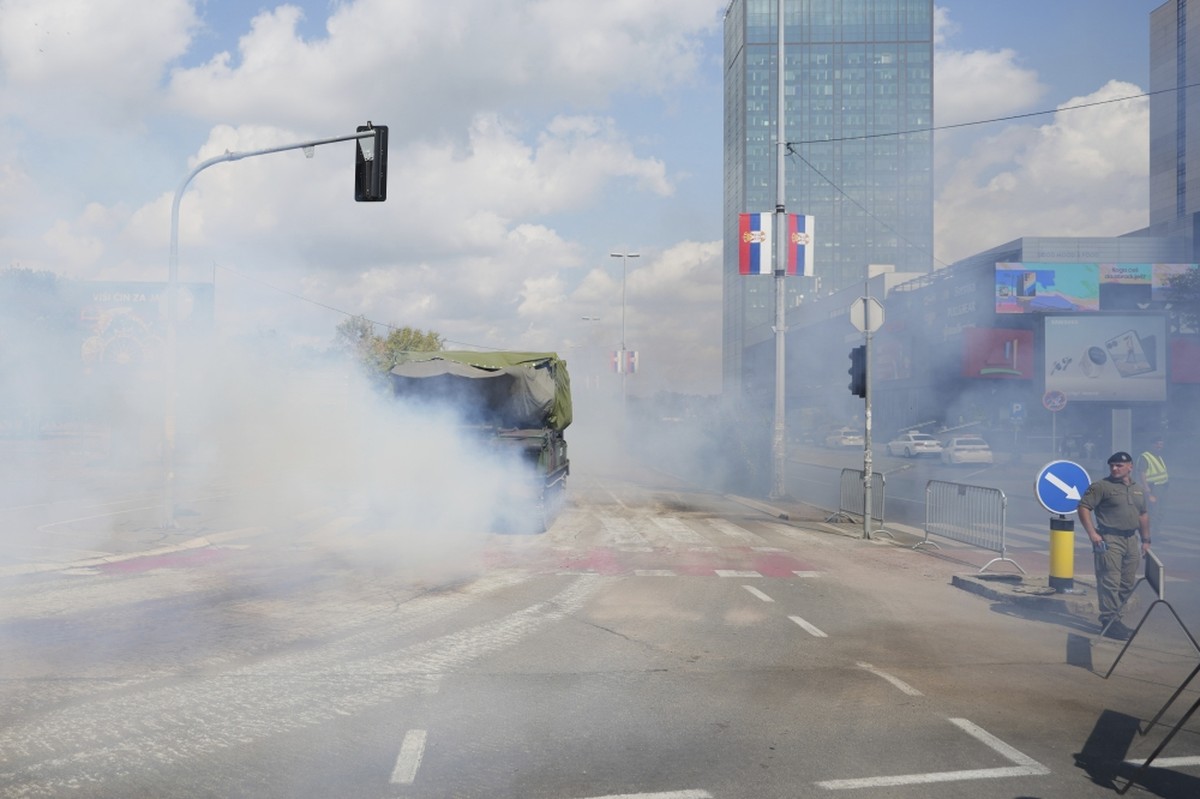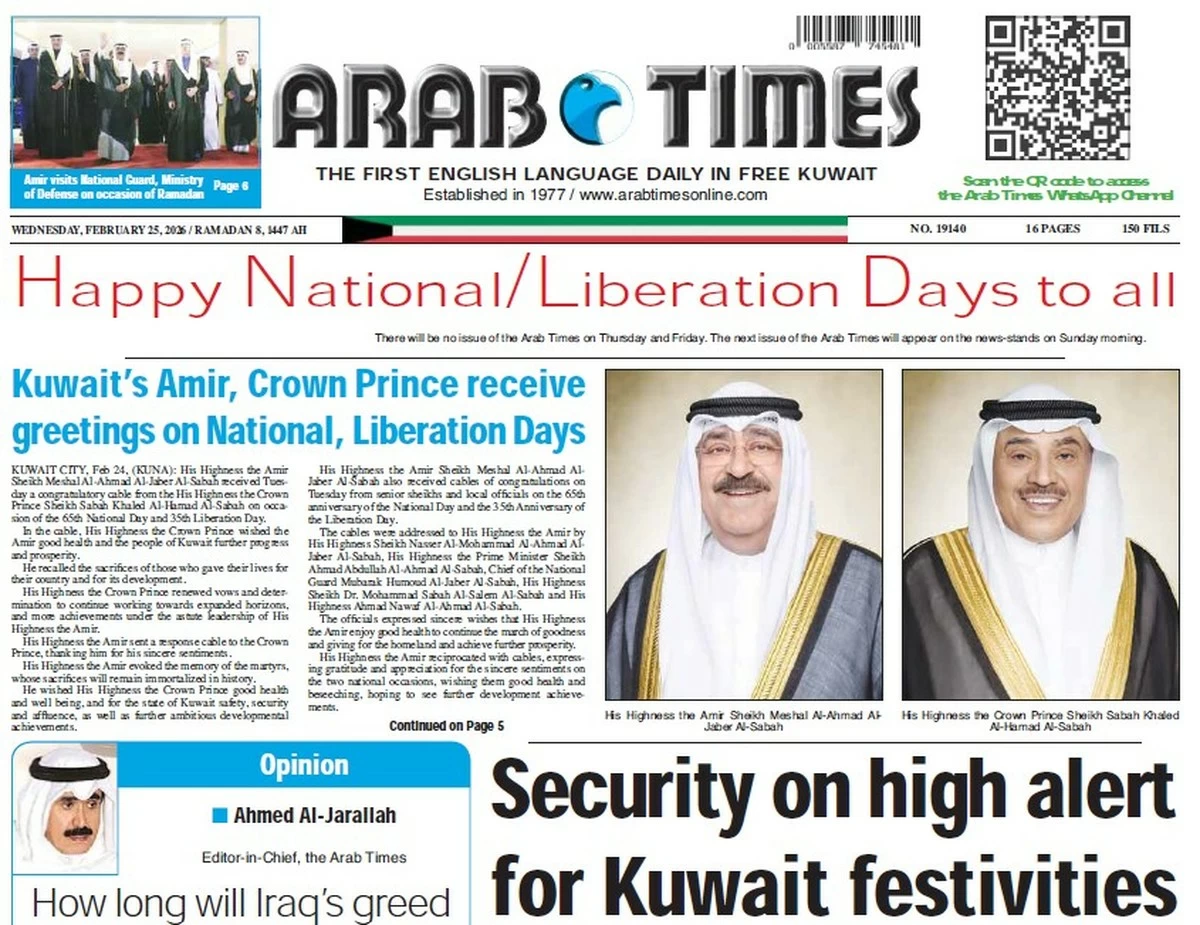13/09/2025
13/09/2025

BELGRADE, Serbia, Sept 13, (AP): Serbian President Aleksandar Vucic is escalating his crackdown on protests that have shaken his populist rule in recent months. What began as a small, student-led campaign against corruption has snowballed into one of the most turbulent protest waves in the Balkan country in a quarter of a century.
Rights groups and Vucic's political opponents have warned of increasingly brutal tactics aimed at silencing a movement that has become the biggest challenge yet to his decade-long grip on power. Last week, tanks rolled through the capital, Belgrade, in preparation for a military parade on Sept. 20. If the parade becomes a flashpoint for unrest, protesters fear the military could remain on the streets.
Vucic has ruled Serbia for more than a decade, reshaping its politics while drawing accusations of corruption and authoritarianism. He began his political career in the 1990s as a hardline nationalist in the Serbian Radical Party, becoming information minister under the late Serbian strongman Slobodan Milosevic.
He was notorious for his calls to punish independent media and his wartime rhetoric against Serbia's neighbors which he maintains to this day. Serbia was defeated in the wars in the Balkans, Milosevic was ousted by a wave of protests in October 2000, and Vucic reinvented himself as a pro-European reformer. He co-founded the Serbian Progressive Party, which promised modernization and EU integration, but he consolidated his power through populism, control of the media, and a tight grip on state institutions.
On Nov. 1, 2024, a canopy collapsed at the railway station in the northern city of Novi Sad, killing at least 16 people. The tragedy, tied to a Chinese-backed renovation project, sparked outrage over alleged state-run corruption and negligence. University students were the first to protest, blocking traffic every Friday for 15 minutes in memory of the dead.
But the anger over corruption quickly resonated beyond campuses, drawing crowds of ordinary citizens frustrated with rising costs of living and a sense of impunity among ruling-party elites. Protesters now demand accountability, transparency, and early elections. At first, the demonstrations were peaceful marches and sit-ins. But tensions rose when authorities deployed riot police, plainclothes officers and even shady parapolice units, led by soccer hooligans loyal to Vucic, to disperse the gatherings with batons, sticks and flares.


